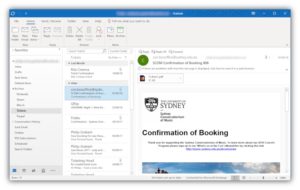Meeting Expectations in Desktop Search
Data is only as good as an employees’ ability to find it. If an employee has a client meeting in 15 minutes and is missing a key piece of data, it’s important that they are able to find that data quickly. A good desktop search solution is key and could actually help create new sources of revenue.
Many people working in desktop search solutions used to market it as a major asset for when decisions were time sensitive. They stopped that, because desktop search, and other search solutions, have become more than a time-crunch stopgap. They have become vital to any modern company. With the average volume of data captured by companies doubling each year, it’s important that a company is able to find that data. Desktop search is not only needed for that time-sensitive meeting, but for everyday work.
They way Forward for Search Solutions
The amount of data coming in is so large that there isn’t a single person that would be able to organize it all; search and usability of the company “assets” is the only way forward.
Companies have put a lot of effort into managing their human assets, but have done a poor job in the accounting of those assets. How do you put a value on a balance sheet for something that is in the head of the employee? The same is true for data, it’s nearly impossible to know the true value of all the data a company has collected, so it is easier for companies to class it as a liability instead of viewing this data as an asset.
Fortunately that trend is reversing. Companies are starting to see real value in their data and job titles like data scientist and search technology manger are starting to become the norm. At the end of the day it isn’t the volume of data that a company has, but the usability of that data. If data is managed properly, the ROI on desktop search and enterprise search infrastructures should be substantial.



Leave a Reply